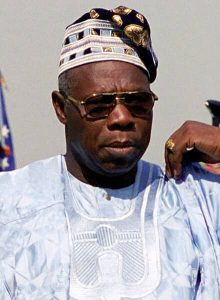By Abdulmalik Abdulwahab

Nigeria as a nation grapples with the complexities of civilian governance amidst a backdrop of historical challenges and contemporary dynamics. From the ashes of military rule emerged a fledgling democracy, promising hope and progress for its people. However, the reality of governance in Nigeria today is a tapestry woven with threads of both promise and peril.
At the helm of Nigeria’s civilian government is the presidency, a seat of power that commands both reverence and scrutiny. From the majestic Aso Rock Villa in Abuja. While ostensibly elected through democratic processes, the path to power often winds through a landscape marred by allegations of corruption, electoral malpractice, and ethno-religious divisions.
However, the true essence of governance in Nigeria extends far beyond the corridors of power in Abuja. It spread through the complicated layers of federalism, where states wield considerable autonomy in shaping their destinies. From the bustling streets of Lagos to the serene landscapes of Kano, governors wield significant influence, serving as the custodians of their respective domains.
The below thin sheet of democratic governance lies a complex web of patronage networks, where loyalty to the ruling party often takes precedence over meritocracy. Political appointments are frequently distributed as rewards for allegiance, leading to a system abundant with nepotism and cronyism. This practice not only undermines the principles of accountability and transparency but also perpetuates a culture of impunity among the ruling elite.
Yet, the path to governance in Nigeria is fraught with challenges. Corruption, a persistent punishment, threatens to erode the very fabric of democracy, as public officials overpower the charm of ill-gotten gains. Despite concerted efforts to combat corruption, graft continues to penetrate every echelon of society, undermining the trust of the Nigerian people in their elected representatives.
Moreover, the specter of insecurity looms large over the nation, casting a shadow of fear and ambiguity. From the menace of Boko Haram in the northeast and Bandits in the northwest to the resurgence of secessionist movements in the southeast, Nigeria grapples with a myriad of security challenges that test the resilience of its democratic institutions.
In the realm of governance technique, Nigeria conflicts with innumerable challenges, ranging from institutional weaknesses to bureaucratic inefficiencies. Where some elites emerge as a beacon of hope, advocating for transparency, accountability, and the rule of law. From grassroots activists to fearless journalists, ordinary Nigerians rise to the occasion, holding their leaders accountable and demanding a government that serves the interests of all.
Ultimately, the story of civilian governance in Nigeria is one of contradictions and complexities. While progress has been made in fewer areas, significant challenges remain in ensuring the principles of democracy, transparency, and accountability are upheld. As Nigeria navigates its path forward, the fate of its civilian government rests in the hands of its people and their collective commitment to building a more just and equitable society.
